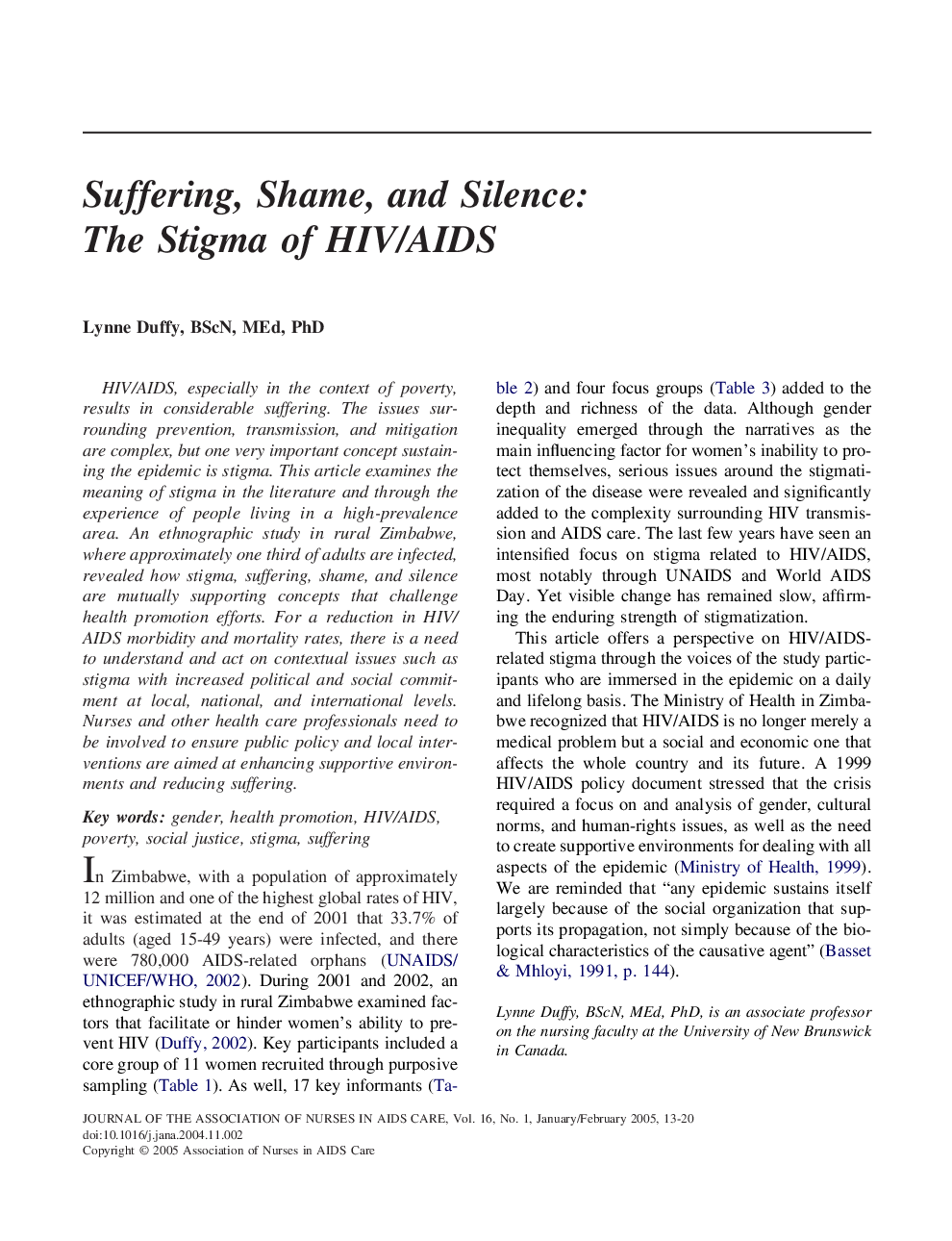| Article ID | Journal | Published Year | Pages | File Type |
|---|---|---|---|---|
| 9927063 | Journal of the Association of Nurses in AIDS Care | 2005 | 8 Pages |
Abstract
HIV/AIDS, especially in the context of poverty, results in considerable suffering. The issues surrounding prevention, transmission, and mitigation are complex, but one very important concept sustaining the epidemic is stigma. This article examines the meaning of stigma in the literature and through the experience of people living in a high-prevalence area. An ethnographic study in rural Zimbabwe, where approximately one third of adults are infected, revealed how stigma, suffering, shame, and silence are mutually supporting concepts that challenge health promotion efforts. For a reduction in HIV/AIDS morbidity and mortality rates, there is a need to understand and act on contextual issues such as stigma with increased political and social commitment at local, national, and international levels. Nurses and other health care professionals need to be involved to ensure public policy and local interventions are aimed at enhancing supportive environments and reducing suffering.
Related Topics
Health Sciences
Medicine and Dentistry
Infectious Diseases
Authors
Lynne BScN, MEd, PhD,
